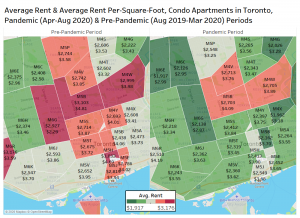As a renter, the piece of plastic you carry around in your wallet can have a profound impact
on everything from how likely your rental application will be approved to the amount of
money you spend (or save) on monthly household bills. With that in mind, we’ve listed five
important credit card tips that every renter should follow.
1.) Pay off your credit card bill on time (it will help your credit score and rental search).
If you’ve ever submitted a rental application before, you’re probably well aware that most
landlords require you to provide a copy of your credit score. This three-digit number is a
measure of your creditworthiness (in other words, it’s a rating of how reliable you are at
paying bills and loans on time) – and the better your score, the higher the likelihood your
rental application will be approved.
One of the biggest factors that goes into formulating your credit score is how often you pay
off your monthly credit card bill on time. As a renter your payment history accounts for an estimated 35
per cent of your total credit score, and a missed payment can leave a negative mark on your
credit report.
In a rental market as competitive as Toronto’s, having a credit score in the bad to poor range
can make it infinitely harder to find a place to rent. So, always prioritize paying off your
credit card on time (even if you only make the minimum payment). Along with a potential hit
to your credit score, missing a credit card payment has other consequences including interest
charges and late fees.
2.) If you don’t have a credit card, open one (even if you won’t use it much)
If you’ve never opened a credit card under your name before, your credit score could be
hurting (and that can make your hunt for a rental apartment that much more difficult).
Here’s why: Without a track-record of credit card payments to refer to, financial institutions
and lenders have less information about how you manage debt and money. That can make it
harder for them to determine your financial reliability, in turn, hurting your score. Having a
credit card can also help to diversify your credit mix, which can increase your score by
showing lenders that you can manage multiple types of credit at once.
If you’ve actively chosen to avoid applying for a credit card for fear of being tempted into
overspending, you can request for a low credit limit or a secured credit card. We suggest
using any of the multiple websites that let you compare the best credit cards in Canada that
are tailored for your personal financial goals.
3.) Use a credit card to save on utilities and household expenses
Rental cheques aside, a considerable chunk of your spending as a renter goes toward paying
for utilities. Along with making a conscious effort to cut down on electricity use, one of the
most effective ways to save on utility bills (as well as other recurring household costs) is to
use a rewards credit card.
Some of Canada’s best cash back credit cards offer up to 2 per cent back for every dollar you
spend on recurring bills (such as hydro, internet and rental insurance) and 4 per cent back on
all your purchases made at grocery stores. Over the course of a year, that can add up to
substantial savings on necessary household expenses. It’s important to note however, you
should only use a credit card to cover expenses that you know you can pay at the end of the
month, otherwise you’ll get hit with costly interest charges.
4.) If you have the money, use a credit card to furnish your home
If you plan on making a number of big-ticket household purchases (such as buying new
furniture for a rental you just moved into) and have the money to pay off everything in full,
you should know there are advantages to using a rewards credit card to cover the bill.
First and foremost, you can offset some of the cost by earning cash back or points on every
dollar you spend. This can be particularly true if your credit card has a welcome offer that
lets you earn bonus points or cash back for a limited-time, further accelerating your savings.
Secondly, many credit cards offer buyer protections, such as automatically doubling the
manufacturer’s warranty on your purchases for free, which can provide some added peace of
mind when it comes to your major household purchases such as a new flat-screen television.
Before you swipe your card however, it can’t be overstated enough that you should only use a
rewards credit card for purchases that you can pay off in full, otherwise you’ll be on the hook
for costly interest charges.
5.) Avoid using cash withdrawals for rental emergencies
If you’re in a financial bind and need cash to cover rent or an urgent home repair, using your
credit card at the ATM for a cash advance can seem like a convenient solution – but it will cost
you big.
Cash advances are almost always accompanied by high fees, and unlike other purchases made
on a credit card, interest is charged upfront from the moment you withdraw money from the
ATM with no grace period. That’s why it’s recommend that you avoid cash advances at all
costs and instead maintain an emergency cash fund specifically to pay for household-related
emergencies.
With that being said, if you’re caught in a situation where you have no other option but to get
a cash advance, it’s best to use a low interest credit card. While most cards charge anywhere
between 22 per cent and 24 per cent in annual interest for cash advances, many of the best
low interest card charge rates as low 8.99 per cent. That can translate to significant savings if
you need money and a cash advance is your only solution.




